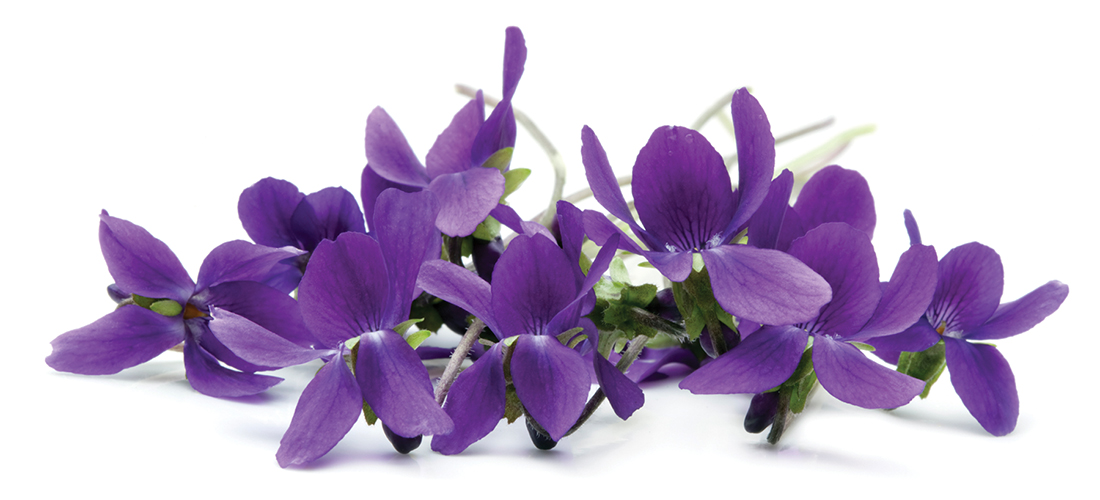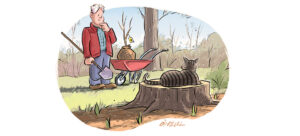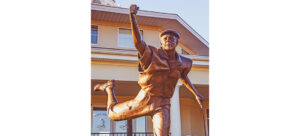
Ode to a Poet
Easter evokes memories of writers and friends
By Tom Allen
A dear friend died in January, a friend I never met, never conversed with, but through whose words I felt an immediate connection. Mary Oliver, a Pulitzer-prize winning poet, died of cancer at 83.
I credit Helen Byrd, my 10th grade English teacher, with my love of reading and narrative writing. But poetry eluded me, save the text of beloved hymns or the Psalms I grew up reading and hearing in the King’s English. I’m sure Psalm 23, a poetic gift from past millennia, was the first poem I ever memorized, probably around age 10. Others were as foreign as the Hebrew in which they were originally penned. I remember spitting out Tennyson’s “Charge of the Light Brigade” for a college English project and occasionally thumbing through my mother’s collection from Helen Steiner Rice, the 20th century queen of inspirational iambic pentameter. (A good poem, I would learn years later, doesn’t have to rhyme, nor will the world stop turning if it doesn’t.) But poetry never connected like a good mystery, a spy-thriller, or a page-turner of a biography. Not until Mary Oliver.
“Poetry, to be understood,” Oliver once said, “must be clear. It mustn’t be fancy.” I concur. That’s probably the reason I fell in love with her writing, my first collection a gift from a clergy friend. Most of her poems were deeply spiritual, filled with images from nature, although Oliver never embraced a particular faith tradition. She wasn’t uncomfortable in a church, a temple, a sanctuary. But more often than not, her cathedrals were formed by black oaks or towering pines. Her font, a pond; incense, a patch of violets. The song of a wren was plainsong chant. Her altar was the world.
Oliver’s words were profound, yet not “fancy,” as she would say. In “Sometimes”, she offered these directives:
Instructions for living a life:
Pay attention.
Be astonished.
Tell about it.
She lived by her words, looking out her back door each morning, with notepad and pencil in hand.
Like the Psalms or the words of a comforting hymn from childhood, Oliver’s “I Worried” encouraged me on more than one occasion.
I worried a lot. Will the garden grow, will the rivers
flow in the right direction, will the earth turn
as it was taught, and if not how shall
I correct it?
Was I right, was I wrong, will I be forgiven,
can I do better?
Will I ever be able to sing, even the sparrows
can do it and I am, well,
hopeless?
Is my eyesight fading or am I just imagining it,
am I going to get rheumatism,
lockjaw, dementia?
Finally I saw that worrying had come to nothing.
And gave it up. And took my old body
and went out into the morning,
and sang.
In going out into the world, Oliver followed her own directive — pay attention. To say she “communed with nature” was an understatement. All of life was sacred, no creature off-limits. All creatures, great and small, have lessons to teach — the bear, the loon, the turtle, humpbacks, snakes, wild geese.
She writes, in “Crows,”
In Japan, in Seattle, in Indonesia – there they were –
each one loud and hungry,
crossing a field or sitting
above the traffic . . .
they don’t envy anyone or anything . . .
Why should they?
The wind is their friend, the least tree is home.
Nor is melody, they have discovered, necessary . . .
I see them in trees, or on ledges of buildings,
as cheerful as thieves of the small job
who have been, one more night, successful –
and like all successes, it turns my thoughts to myself.
Should I have led a more simple life?
Have my ambitions been worthy?
Has the wind, for years, been talking to me as well?
The week before Easter, I will visit two cemeteries, to mourn and give thanks for family and friends who rest beneath the shade of pines and cedars. And I will pay attention. Not to years lived but to the silence and sacredness of those places, to the cardinal who graces a branch with his color or the lone, late daffodil that will not be overpowered by grey granite. I will look, and listen, and give thanks.
I can hear Mary Oliver saying to those women who came early, that first Easter, with oils and spices, to care for the body of their entombed Lord, “pay attention, be astonished, tell about it.” They were, and they did.
And though distanced by millennia, the final couplet from one of her most popular poems, “The Summer Day,” could well be her departing words to those women, and to us:
Tell me, what is it you plan to do
with your one wild and precious life?
May Easter, and spring’s rebirth, cause us to be attentive, to ponder our stories, and to ask those questions that matter most. PS
Tom Allen is minister of education at First Baptist Church, Southern Pines.





